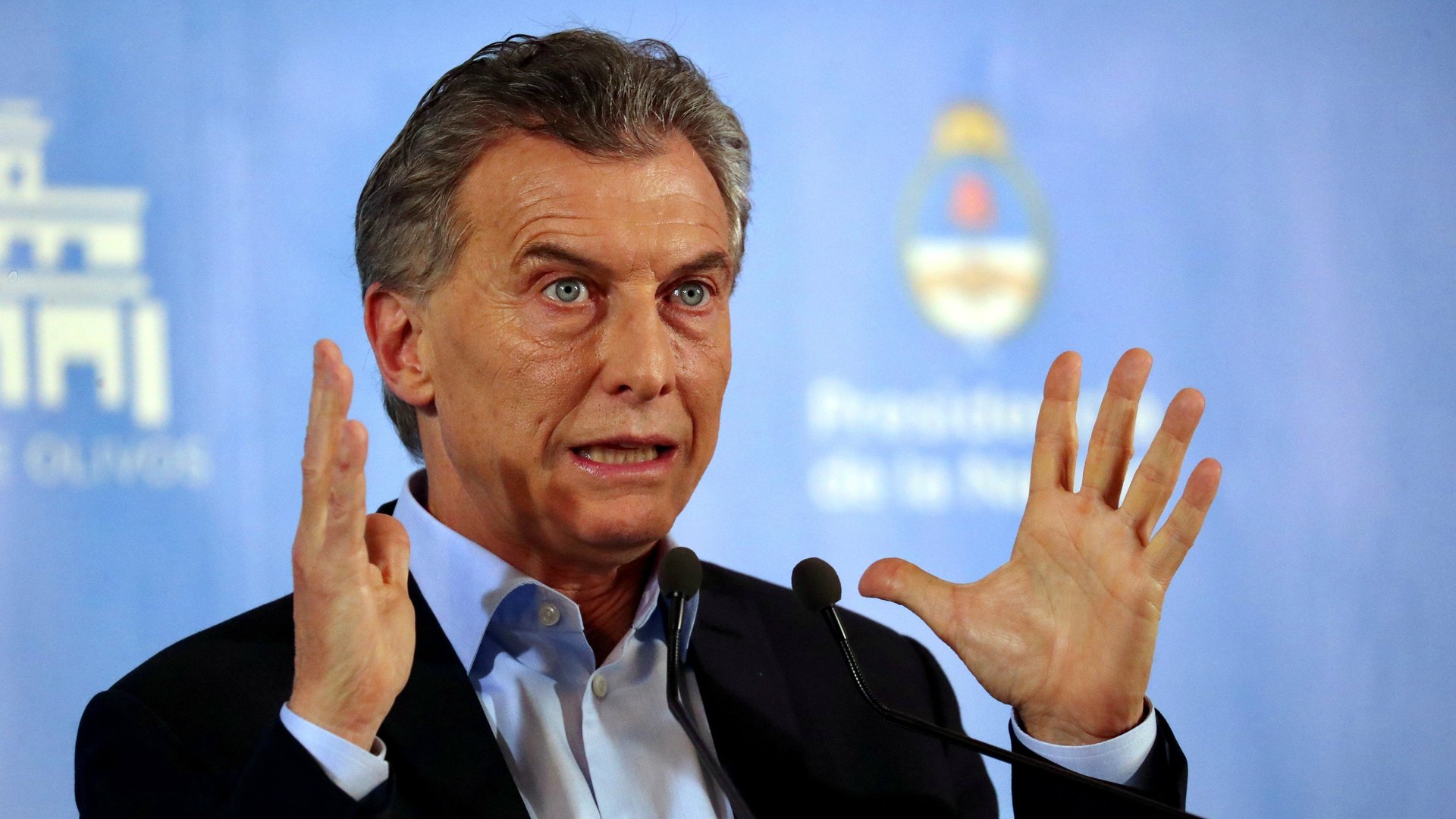Argentina and Turkey are battling against a collapse in confidence with different weapons
Argentina is in a fierce battle against the collapse of investor confidence (paywall) in its government. Right now, it’s losing.


Argentina is in a fierce battle against the collapse of investor confidence (paywall) in its government. Right now, it’s losing.
For the past four months, Argentina has sunk deeper and deeper into a currency crisis. The peso is the worst performing currency in the world and has lost more than half of its value against the US dollar since the start of the year.
Turkey is suffering from a similar bout of investor disapproval that has sunk the lira to record lows.
What’s interesting is that while these countries are dealing with similar economic problems—large current account deficits, an unwieldily stock of dollar-denominated debt, and double-digit inflation—the paths they are taking to try and stem their crisis are very different.
In real time, the world is watching two national economic experiments play out.
Argentina’s high interest rates
In theory, Argentina should be crawling out of the trenches. It’s taking the orthodox economic measures designed to show it’s serious about suffering the short-term economic pain needed to get inflation under the control.
On Monday, the government announced a series of steps to cut government spending. It will halve the number of government ministries, raise export taxes, and end its budget deficit by next year (earlier than previously planned). This is after the central bank raised interest rates to 60%, the highest in the world. Even when inflation spiraled upward in the late 1970s and 1980s in the US and UK, interest rates only ever got as high as 20% and 17% respectively.
The Argentine government has also secured a $50 billion credit line from the International Monetary Fund in June. On Tuesday, members of Argentina’s government are meeting with the IMF to speed up the disbursement of funds from the credit line.
And yet, the peso keeps on falling.
Turkey is slow to hike interest rates
On the other side there is Turkey. President Recep Tayyip Erdogan maintains the belief that the country’s double digit inflation can’t be controlled by higher interest rates, and that they should actually be lowered. New data released on Monday showed the inflation rate rising to nearly 18% last month.
Investors want Turkey to take the traditional route to quell inflation and raise interest rates. The central bank has finally signaled that it might do that later this month. But that still hasn’t ended the slump in the lira.
What will work?
In the end, it’s unclear if either of the approaches will lure back investors. Safer US assets are becoming more attractive. The dollar has been strengthening on the back of the Federal Reserve’s interest rate hikes and the US’s strong economy. It’s possible that emerging markets have just fallen out of favor.
Turkey and Argentina will need to take action to tackle their stock of foreign debt and budget deficits as their currencies plummet, but they shouldn’t rely on winning investors back.